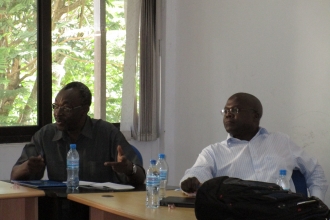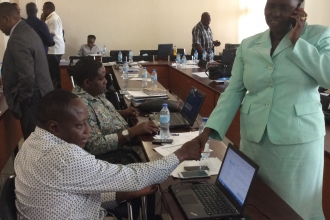CEGA-EASST Welcomes Remidius Ruhinduka To UC Berkeley
Remidius Ruhinduka, a lecturer and EfD research fellow at the University of Dar Es Salaam, participated in a short-term visiting fellowship with CEGA-EASST at UC Berkeley from April 18-22, 2016. Over…


